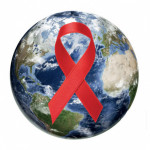Two thirds of pregnant women living with HIV around the globe—roughly 370,000 women—do not have access to antiretroviral (ARV) therapy, which has been proved to reduce mother-to-child transmission of the virus, according to a new study by the International Treatment Preparedness Coalition and reported on by Bloomberg.
According to the article, this lack of access to medication in developing countries is leading to an increase in babies born HIV positive. In the report, the group criticized government and global health groups for poor planning, funding discrepancies and valuing the lives of richer women over the poor.
“Donors talk the talk, but don’t walk the walk,” said coalition leader Gregg Gonsalves. “For millions of women, maternal and child health is about HIV/AIDS, and we have failed them.”
Meanwhile, wealthier countries such as the United States have slashed infection rates in babies by more than 90 percent by providing ARVs to positive women and their infants around the time of labor and delivery.
The authors of the report wrote that the following should be available for these women: more expensive and more effective triple-drug combination therapy instead of the cheaper single dose of nevirapine, better overall health care and HIV education.
Advertisement
Advertisement
Advertisement






Comments
Comments